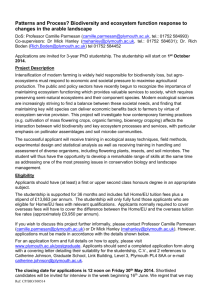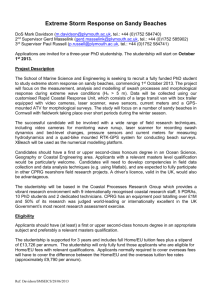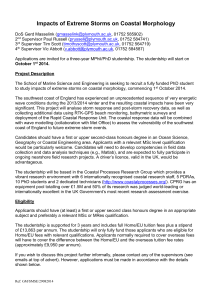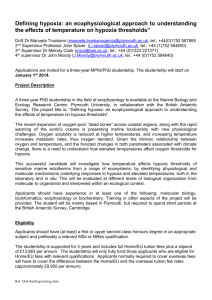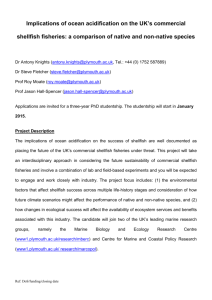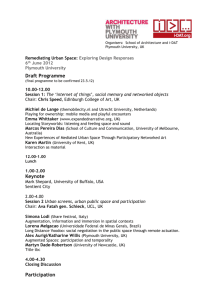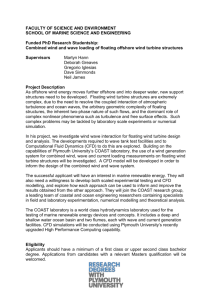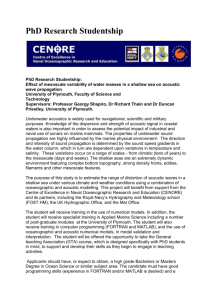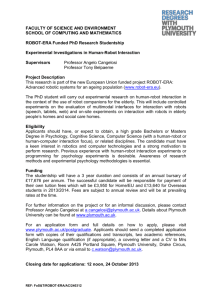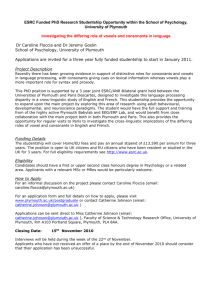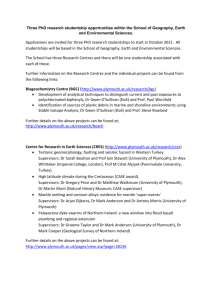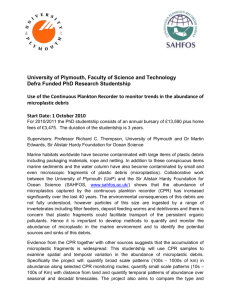NERC Funded Ph
advertisement
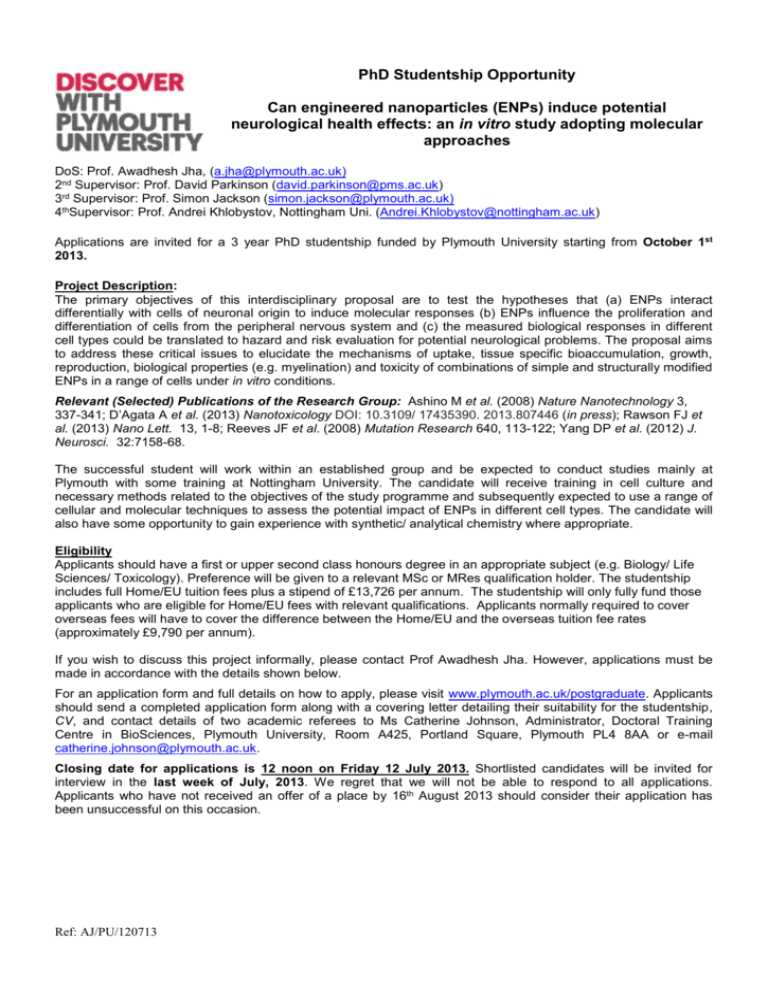
PhD Studentship Opportunity Can engineered nanoparticles (ENPs) induce potential neurological health effects: an in vitro study adopting molecular approaches DoS: Prof. Awadhesh Jha, (a.jha@plymouth.ac.uk) 2nd Supervisor: Prof. David Parkinson (david.parkinson@pms.ac.uk) 3rd Supervisor: Prof. Simon Jackson (simon.jackson@plymouth.ac.uk) 4thSupervisor: Prof. Andrei Khlobystov, Nottingham Uni. (Andrei.Khlobystov@nottingham.ac.uk) Applications are invited for a 3 year PhD studentship funded by Plymouth University starting from October 1st 2013. Project Description: The primary objectives of this interdisciplinary proposal are to test the hypotheses that (a) ENPs interact differentially with cells of neuronal origin to induce molecular responses (b) ENPs influence the proliferation and differentiation of cells from the peripheral nervous system and (c) the measured biological responses in different cell types could be translated to hazard and risk evaluation for potential neurological problems. The proposal aims to address these critical issues to elucidate the mechanisms of uptake, tissue specific bioaccumulation, growth, reproduction, biological properties (e.g. myelination) and toxicity of combinations of simple and structurally modified ENPs in a range of cells under in vitro conditions. Relevant (Selected) Publications of the Research Group: Ashino M et al. (2008) Nature Nanotechnology 3, 337-341; D’Agata A et al. (2013) Nanotoxicology DOI: 10.3109/ 17435390. 2013.807446 (in press); Rawson FJ et al. (2013) Nano Lett. 13, 1-8; Reeves JF et al. (2008) Mutation Research 640, 113-122; Yang DP et al. (2012) J. Neurosci. 32:7158-68. The successful student will work within an established group and be expected to conduct studies mainly at Plymouth with some training at Nottingham University. The candidate will receive training in cell culture and necessary methods related to the objectives of the study programme and subsequently expected to use a range of cellular and molecular techniques to assess the potential impact of ENPs in different cell types. The candidate will also have some opportunity to gain experience with synthetic/ analytical chemistry where appropriate. Eligibility Applicants should have a first or upper second class honours degree in an appropriate subject (e.g. Biology/ Life Sciences/ Toxicology). Preference will be given to a relevant MSc or MRes qualification holder. The studentship includes full Home/EU tuition fees plus a stipend of £13,726 per annum. The studentship will only fully fund those applicants who are eligible for Home/EU fees with relevant qualifications. Applicants normally required to cover overseas fees will have to cover the difference between the Home/EU and the overseas tuition fee rates (approximately £9,790 per annum). If you wish to discuss this project informally, please contact Prof Awadhesh Jha. However, applications must be made in accordance with the details shown below. For an application form and full details on how to apply, please visit www.plymouth.ac.uk/postgraduate. Applicants should send a completed application form along with a covering letter detailing their suitability for the studentship, CV, and contact details of two academic referees to Ms Catherine Johnson, Administrator, Doctoral Training Centre in BioSciences, Plymouth University, Room A425, Portland Square, Plymouth PL4 8AA or e-mail catherine.johnson@plymouth.ac.uk. Closing date for applications is 12 noon on Friday 12 July 2013. Shortlisted candidates will be invited for interview in the last week of July, 2013. We regret that we will not be able to respond to all applications. Applicants who have not received an offer of a place by 16th August 2013 should consider their application has been unsuccessful on this occasion. Ref: AJ/PU/120713
